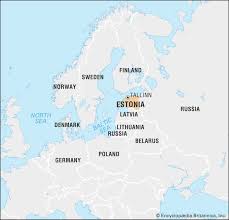In the ever-evolving landscape of cryptocurrency, the importance of choosing the best countries for crypto and understanding crypto regulations cannot be overstated. As global interest in digital assets continues to surge, certain countries adopting cryptocurrency have emerged as beacons of support and innovation for the crypto community. This comprehensive guide aims to delve into the top 10 cryptocurrency legal countries that provide a conducive environment for crypto traders and startup founders alike.
Estonia, a pioneer in e-governance, has established itself as a haven for blockchain and crypto ventures, offering a streamlined process for obtaining licenses and leveraging its advanced digital infrastructure. Meanwhile, Singapore has positioned itself as a leading fintech hub, embracing blockchain innovation and providing a progressive regulatory framework that fosters growth and collaboration within the cryptocurrency industry.
Switzerland, particularly in the renowned “Crypto Valley” of Zug, has solidified its reputation as a global epicenter for blockchain and cryptocurrency, attracting a multitude of startups and investors due to its favorable regulatory environment and access to a vibrant ecosystem of like-minded professionals. Germany and the United Kingdom have also emerged as key players in the European crypto landscape, with supportive regulations and a burgeoning community of cryptocurrency enthusiasts and entrepreneurs.
Canada, Malta, and Portugal offer promising opportunities for crypto businesses, each with its unique advantages such as favorable tax regimes, regulatory clarity, and government support for blockchain initiatives. Notably, El Salvador made headlines by becoming the first of the countries that accept cryptocurrency as legal tender, signaling a bold step towards embracing digital currencies on a national scale.
This article will provide an in-depth analysis of the benefits, opportunities, and challenges presented by each of these crypto-friendly nations, equipping readers with valuable insights to make informed decisions when considering international expansion or relocation within the dynamic world of cryptocurrency. Join us as we explore the leading destinations for crypto trading, crypto exchanges, and digital currencies.
This is part two of the two part post, read about the part 1 : A Start-Up’s Guide to Crypto Friendly Countries: Where to Begin?
Estonia

In the context of Estonia’s regulatory and legal framework for crypto businesses, several key aspects stand out, reflecting the country’s approach to cryptocurrency and blockchain technology:
- Regulatory Requirements:
- Authorization is mandatory for crypto businesses to operate, necessitating approval from financial monitoring authorities. This ensures that entities engaged in crypto activities adhere to established guidelines and standards, promoting a secure and regulated environment for crypto transactions.
- Despite the absence of legal tender status for cryptocurrencies, Estonia recognizes the legality of cryptocurrency exchanges, requiring them to register with the Financial Intelligence Unit. This registration process is a critical step towards legitimizing and monitoring crypto exchanges, contributing to the overall transparency and reliability of the crypto market within the country.
- AML/CFT Regulations:
- A significant move by Estonia to enhance its Anti-Money Laundering (AML) and Counter Financing of Terrorism (CFT) framework involved publishing a draft bill aimed at extending AML/CFT regulations to cryptocurrency exchanges. One of the notable provisions within this bill is the effective ban on the use of private cryptocurrency wallets provided by Virtual Asset Service Providers (VASPs). This measure is intended to mitigate the risks associated with anonymous transactions and enhance the traceability of crypto assets, aligning Estonia’s regulatory landscape with international standards for financial security and transparency.
Estonia’s regulatory stance and legal requirements for crypto businesses underscore the country’s commitment to fostering a secure and regulated environment for blockchain technology and cryptocurrencies. By mandating authorization from financial monitoring authorities, requiring registration of crypto exchanges, and extending AML/CFT regulations, Estonia aims to balance innovation in the crypto sector with necessary safeguards against financial crimes and risks associated with cryptocurrency transactions.
Singapore

Singapore emerges as a pivotal hub in the global landscape for crypto trading, marked by its comprehensive regulatory and tax framework tailored for both individuals and businesses within the cryptocurrency domain. This island nation has meticulously crafted a regulatory environment that balances innovation with investor protection, setting a benchmark for crypto-friendly governance.
- Regulatory Framework:
- Cryptocurrencies are not recognized as legal tender, underscoring the government’s stance on maintaining the traditional financial system’s integrity while embracing digital currencies.
- Crypto exchanges and service providers must register with the Monetary Authority of Singapore (MAS), ensuring a regulated operational landscape. This registration process is instrumental in fostering a transparent and secure ecosystem for crypto transactions.
- MAS has further issued guidelines restricting the public advertisement of crypto services, aiming to safeguard the general public from potential risks associated with crypto investments and to prevent speculative trading behaviors.
- Tax Benefits:
- Singapore offers distinct tax advantages for crypto businesses and investors, positioning itself as a lucrative destination for establishing and operating crypto enterprises. The absence of capital gains tax on cryptocurrency profits exemplifies the country’s commitment to nurturing the growth of the crypto sector.
The juxtaposition of Singapore’s regulatory clarity and favorable tax regime with its global counterparts reveals a strategic approach to fostering a thriving crypto ecosystem. While cryptocurrencies are not deemed legal tender, akin to many jurisdictions, Singapore distinguishes itself through a well-defined regulatory pathway for crypto exchanges and a compelling tax incentive structure. This harmonious blend of regulation and taxation underscores Singapore’s vision to be at the forefront of the digital economy, making it an attractive destination for crypto entrepreneurs and investors seeking a supportive and clear regulatory environment.
Switzerland

Switzerland distinguishes itself as a leading destination for blockchain startups and crypto enterprises, thanks to its well-established regulatory framework and supportive tax regime. This comparative analysis delves into the country’s unique position in the global crypto landscape:
- Regulatory Framework:
- Crypto Valley: Switzerland’s canton of Zug, known as “Crypto Valley,” is home to hundreds of blockchain startups, including the Ethereum Foundation, underscoring the country’s commitment to fostering innovation within the crypto space.
- Legal Status and Licensing: While cryptocurrencies are not considered legal tender in Switzerland, their acceptance in various contexts and the legality of cryptocurrency exchanges, which are required to obtain a license from the Swiss Financial Market Supervisory Authority (FINMA), reflect a balanced approach to crypto regulation.
- Innovative Legislation: The introduction of the Distributed Ledger Technology (DLT) Act in September 2020 further exemplifies Switzerland’s proactive stance in creating a conducive environment for blockchain technologies, ensuring legal certainty and promoting the use of digital securities.
- Tax Regime and IP-Friendly Jurisdiction:
- Tax Advantages: Switzerland, along with the Netherlands and Cyprus, is recognized for its IP-friendly jurisdictions with special tax regimes for IP-related income, offering significant incentives for crypto businesses.
- Crypto Taxation: The acceptance of cryptocurrencies in some contexts without them being considered legal tender, coupled with a regulatory environment that mandates licensing for crypto exchanges, positions Switzerland as a favorable locale for crypto enterprises seeking clarity and stability in their operations.
- Comparative Analysis:
- Switzerland vs. Other Crypto-Friendly Countries: When compared to other jurisdictions, Switzerland’s comprehensive DLT Act, favorable tax policies for IP-related income, and the requirement for crypto exchanges to be licensed under FINMA set a high standard for regulatory clarity and support for innovation. Unlike some countries where the legal status of cryptocurrencies remains ambiguous, Switzerland’s clear guidelines and supportive ecosystem for blockchain startups make it a hub for initial coin offerings and a preferred destination for crypto entrepreneurs.
This analysis underscores Switzerland’s strategic approach to embracing blockchain technology and cryptocurrencies, balancing innovation with regulation, and offering a supportive environment for startups and established enterprises alike.
Germany

Germany presents a distinctive approach toward the regulatory and tax status of cryptocurrencies, positioning itself as an attractive destination for crypto traders and businesses. A comparative analysis with other jurisdictions reveals the nuanced advantages Germany offers:
- Regulatory Clarity:
- Private Money Classification: Germany treats cryptocurrencies as private money, which provides a clear and stable legal framework for individuals and enterprises engaging in crypto transactions. This classification distinguishes Germany from countries where the legal status of cryptocurrencies remains ambiguous, enhancing its appeal as a jurisdiction with regulatory clarity.
- Tax Regime:
- Capital Gains Tax Exemption for Individuals: If cryptocurrencies are held for longer than a year, individuals are exempt from taxes on capital gains. This policy is particularly favorable when compared to jurisdictions that impose capital gains tax regardless of the holding period.
- Crypto Reporting Obligations: Despite the tax benefits, Germany enforces crypto reporting obligations to maintain transparency and compliance within the crypto market. This requirement underscores Germany’s balanced approach to fostering a crypto-friendly environment while ensuring regulatory compliance.
- Comparative Analysis:
- When juxtaposed with other crypto-friendly countries, Germany’s tax regime emerges as notably advantageous for long-term individual investors. The exemption from capital gains tax after a holding period of one year sets Germany apart from countries with stringent tax policies on crypto assets.
- The requirement for crypto businesses to adhere to reporting obligations reflects Germany’s commitment to transparency and regulatory compliance, aligning with global standards for financial operations within the crypto space.
This analysis underscores Germany’s strategic positioning within the global landscape of crypto-friendly countries. By offering regulatory clarity and a favorable tax regime, Germany not only attracts crypto traders and businesses but also ensures a secure and transparent market environment.
United Kingdom

In the United Kingdom, the regulatory landscape for cryptocurrencies and crypto exchanges is characterized by a structured approach aiming to provide clarity and security for both businesses and investors in the crypto space. This approach is reflected in two key areas:
- Legal Status and Regulatory Requirements:
- Cryptocurrencies are not classified as legal tender within the UK. This distinction is crucial for understanding the operational and legal boundaries within which crypto businesses must operate.
- All cryptocurrency exchanges operating in the UK are required to register with the Financial Conduct Authority (FCA). This registration process is part of the UK’s efforts to establish a secure and transparent environment for crypto transactions, ensuring that exchanges adhere to specific operational standards and compliance requirements.
- Adherence to International Guidelines:
- The UK has incorporated the latest Financial Action Task Force (FATF) guidelines into its regulatory framework. This is evident from amendments made to the Money Laundering, Terrorist Financing and Transfer of Funds (Information on the Payer) Regulations 2017 (MLRs). These amendments reflect the UK’s commitment to aligning its anti-money laundering (AML) and counter-financing of terrorism (CFT) measures with global standards, further enhancing the integrity of its crypto market.
Comparatively, when looking at the regulatory and tax status across different jurisdictions, the UK’s approach stands out for its emphasis on compliance with international guidelines and the mandatory registration of crypto exchanges with the FCA. This structured regulatory framework aims to balance the need for innovation and growth in the crypto sector with the imperative of ensuring market integrity and investor protection. The incorporation of FATF guidelines into the MLRs highlights the UK’s proactive stance in adapting its legal framework to address the evolving challenges and opportunities presented by the global crypto market.
Canada

Canada’s stance on blockchain technology and cryptocurrencies represents a balanced approach, combining a progressive regulatory environment with clear tax practices. This section delves into Canada’s regulatory and tax status, offering a comparative analysis that underscores the country’s position within the global crypto landscape.
Regulatory Environment:
- Blockchain Potential: Canada recognizes the “vast potential” of blockchain technology across various industries, from enhancing transparency in the food supply chain to improving international trade practices. The country acknowledges both the economic and job creation opportunities blockchain presents.
- Crypto Mining and Energy Concerns: Despite the benefits, cryptocurrency mining’s energy consumption and its potential environmental impact have raised concerns. Canada addresses these by providing a secure and predictable foundation for Bitcoin mining operations, with companies like D-Central Technologies offering personalized and energy-efficient mining solutions.
- Regulatory Framework: Cryptocurrency exchanges in Canada are treated akin to money services businesses, requiring registration with FinTRAC and adherence to due diligence and reporting obligations. This clear regulatory stance, coupled with the Canadian Securities Administrators’ (CSA) guidance for crypto issuers, provides a secure framework for crypto transactions and operations.
Tax Status and Comparative Analysis:
- Commodity Classification: Canada treats cryptocurrencies as commodities, establishing clear tax practices and reporting requirements for transactions. This classification aids in transparency and compliance, distinguishing Canada from jurisdictions with less defined tax guidelines for crypto assets.
- Legal Tender and Exchange Registration: Unlike countries that recognize cryptocurrencies as legal tender, Canada does not, instead requiring cryptocurrency exchanges to register with FinTRAC. This ensures a level of operational security and integrity within the crypto market.
Comparative Analysis:
- Regulatory and Tax Clarity: Canada’s approach to blockchain and cryptocurrencies—balancing innovation with regulation and environmental concerns—sets a precedent in the global arena. The country’s progressive regulatory environment and clear tax practices provide a conducive ecosystem for crypto businesses and investors, contrasting with jurisdictions that either lack clear guidelines or impose stringent regulations that could stifle innovation.
Canada’s strategic positioning in the global cryptocurrency and blockchain landscape is underscored by its commitment to leveraging the technology’s potential while addressing associated challenges. The country’s balanced regulatory framework, coupled with clear tax practices, not only fosters innovation but also ensures a secure and transparent environment for crypto businesses and investors.
Malta

Malta, often referred to as “Blockchain Island,” has positioned itself as a frontrunner in the crypto and blockchain space through its progressive regulatory frameworks and tax policies. A comparative analysis with other jurisdictions highlights Malta’s distinct approach:
- Regulatory Framework:
- Established Regulatory Body: The Malta Financial Services Authority (MFSA) oversees cryptocurrency exchanges, requiring them to register for operation. This regulatory certainty contrasts with regions where crypto exchanges operate in a more ambiguous legal environment.
- Blockchain Technology Framework: In July 2018, Malta passed three pivotal bills to establish a comprehensive legal framework for blockchain technology. This legislative approach provides a structured and supportive environment for blockchain startups, setting Malta apart from countries with less developed regulatory frameworks for blockchain technology.
- Taxation and Financial Incentives:
- No Capital Gains Tax: Malta does not levy any capital gains tax on long-held cryptocurrencies, offering a significant financial incentive for crypto investors and traders. This tax policy is particularly favorable when compared to jurisdictions that impose capital gains tax on crypto assets regardless of the holding period.
- Corporate Benefits: Crypto startups in Malta benefit from low net corporate rates and the possibility of opening EU bank accounts, enhancing the financial attractiveness of the jurisdiction for business operations. This contrasts with countries where high corporate taxes and banking restrictions pose challenges to crypto businesses.
- Future Regulatory Developments:
- Global Leadership Ambitions: The Maltese government is actively exploring further cryptocurrency regulation to strengthen its position as a global leader in the crypto space. This forward-looking stance indicates a commitment to adapting and evolving its regulatory framework in response to the changing landscape of cryptocurrency and blockchain technology.
Through this comparative analysis, Malta’s strategic approach to fostering a conducive environment for crypto and blockchain businesses becomes evident. The combination of a clear regulatory framework, favorable tax policies, and a forward-thinking government places Malta in a unique position within the global crypto landscape, offering distinct advantages for startups and investors navigating the complexities of cryptocurrency regulations and taxation.
Portugal

Portugal’s approach to cryptocurrency taxation underwent significant changes in 2023, introducing new rules that impact both individuals and businesses engaged in crypto-related activities. The following points provide a detailed overview of Portugal’s current crypto tax framework:
- Crypto Trading for Fiat Currencies:
- If cryptocurrencies are traded for fiat and held for less than 12 months, the profits are taxed at a rate of 28%. This taxation model encourages long-term investments in the crypto market, aligning with Portugal’s broader financial investment strategies.
- Tax-Exempt Transactions:
- Notably, trading between cryptocurrencies (crypto-to-crypto) and transactions involving Non-Fungible Tokens (NFTs) are exempt from taxation. This exemption showcases Portugal’s progressive stance towards fostering innovation and growth within the digital asset space, recognizing the unique nature of these transactions compared to traditional fiat conversions.
- Crypto Mining and Staking:
- In a move to regulate emerging crypto activities, Portugal has introduced taxation on profits derived from crypto mining and staking. This decision reflects the country’s effort to establish a comprehensive tax framework that encompasses various aspects of the crypto ecosystem, ensuring that emerging trends and practices are appropriately regulated.
Comparative Analysis with Other Jurisdictions:
Portugal’s nuanced approach to cryptocurrency taxation, with its blend of tax incentives for certain transactions and the imposition of taxes on others, positions it uniquely among crypto-friendly countries. The exemption of crypto-to-crypto and NFT trading from taxes contrasts with jurisdictions that may apply capital gains tax across all forms of crypto transactions, highlighting Portugal’s intent to support the diversification and growth of the crypto market. Meanwhile, the taxation of short-term crypto trading and mining activities aligns with global trends towards establishing clear tax obligations for profitable crypto ventures, ensuring fiscal responsibility while fostering the sector’s development.
Switzerland (Crypto Valley)

Switzerland’s Crypto Valley stands as a beacon of innovation and regulatory foresight in the digital asset space. This region’s emergence and sustained growth can be attributed to a confluence of factors that collectively foster an environment conducive to blockchain and cryptocurrency ventures:
- Foundation and Growth:
- The inception of Crypto Valley traces back to 2013, initiated by Swiss companies advocating for a digital asset-friendly regulatory landscape.
- Switzerland’s reputation as a financial hub, combined with its multilingual culture and open economy, has significantly contributed to the Valley’s success, making it a magnet for foreign investment.
- Business Environment:
- A business-friendly government, reasonable taxation, and high-quality products and services underscore the supportive business culture in Switzerland, emphasizing quality and efficiency.
- Access to top-tier research institutes and a large pool of experts in the field further bolster the Valley’s appeal, underpinning its status as a global center for blockchain innovation.
- Comparative Analysis:
- Regulatory Status and Tax Status: Unlike many regions, Switzerland has fostered a regulatory environment that not only accommodates but actively supports blockchain and crypto businesses. The legal framework, highlighted by the establishment of Crypto Valley, is characterized by clarity and a supportive stance towards digital assets.
- Innovation and Investment: The combination of high productivity, a multilingual and open economy, and strong networks has positioned Switzerland at the forefront of blockchain innovation, attracting significant foreign investment. This contrasts with jurisdictions where regulatory ambiguity or restrictive tax regimes may deter investment or innovation in the crypto sector.
Switzerland’s strategic approach, leveraging its long-standing financial expertise and nurturing an innovation-friendly environment, has cemented Crypto Valley’s position as a leading global destination for blockchain and cryptocurrency enterprises. The regulatory foresight and supportive business culture underscore the country’s commitment to maintaining and enhancing its stature within the international digital asset community.
El Salvador

El Salvador’s groundbreaking move to adopt Bitcoin as legal tender in September 2021 has positioned it uniquely in the global landscape of crypto-friendly countries. This decision, aimed at setting Bitcoin as one of the main sectors of its economy, has garnered attention worldwide for its bold approach to cryptocurrency integration [8][68].
Regulatory and Tax Comparison:
- Regulatory Environment:
- El Salvador: Made Bitcoin legal tender, a global first, indicating a highly supportive regulatory stance towards cryptocurrencies. The country aims to integrate Bitcoin into its economy, showcasing an unprecedented level of acceptance.
- Comparative Insight: Unlike El Salvador, cryptocurrency exchange regulations in Latin America and globally are sparse, with laws varying significantly by country. This makes El Salvador’s regulatory environment particularly conducive for crypto businesses and investors.
- Tax Incentives:
- El Salvador: Offers no income and capital gains taxes for Bitcoin investors, presenting a highly attractive tax environment for individuals and entities engaged in Bitcoin transactions. This policy is part of El Salvador’s strategy to encourage investment and economic growth through cryptocurrency adoption.
- Comparative Insight: The absence of income and capital gains taxes on Bitcoin in El Salvador contrasts with the more complex and varied cryptocurrency tax regimes in other countries. This simplification of tax obligations for crypto investors places El Salvador at a competitive advantage.
Global Concerns and Challenges:
Despite its pioneering status, El Salvador’s Bitcoin adoption has not been without its challenges. Both the World Bank and the International Monetary Fund (IMF) have expressed concerns regarding the country’s decision, citing macroeconomic, financial, and legal issues that could arise from this unprecedented move. These concerns highlight the complexities and potential risks associated with integrating cryptocurrencies into a national economy on such a scale.
El Salvador’s approach represents a bold experiment in the use of digital currencies as legal tender. While it offers significant regulatory and tax advantages for crypto investors, the global concerns raised by major financial institutions underscore the need for careful consideration and management of the potential risks involved.
Conclusion
In conclusion, the global landscape for crypto traders and startup founders is evolving rapidly, and the top 10 crypto-friendly countries highlighted in this article are at the forefront of this dynamic industry. Estonia, Singapore, Switzerland, Germany, the United Kingdom, Canada, Malta, Portugal, Switzerland (Crypto Valley), and El Salvador have positioned themselves as favorable locations for crypto businesses due to their progressive cryptocurrency regulations, supportive government initiatives, and thriving crypto ecosystems.
Looking ahead, the future of crypto startups appears promising in these countries. Estonia, known for its e-residency program and digital infrastructure, offers a conducive environment for blockchain and cryptocurrency ventures. Singapore continues to attract crypto innovators with its pro-business policies and strategic location as a financial hub in Asia. Switzerland, particularly the Crypto Valley in Zug, remains a hotbed for blockchain innovation and investment, showcasing the country’s commitment to fostering crypto entrepreneurship.
Furthermore, Germany, the United Kingdom, Canada, Malta, and Portugal have all embraced cryptocurrency and blockchain technology, providing entrepreneurs with access to skilled talent, funding opportunities, and regulatory clarity. El Salvador’s groundbreaking adoption of Bitcoin as legal tender has positioned the country as a pioneering force in the crypto space, offering unique opportunities for startups to participate in a novel regulatory environment.
These countries present a myriad of benefits and opportunities for crypto traders and startup founders, including access to a supportive regulatory environment, a skilled workforce, access to capital, and a vibrant community of like-minded individuals. As the global crypto industry continues to mature, these nations are poised to play an increasingly significant role in shaping the future of cryptocurrency and blockchain technology.
Disclaimer: This article is for informational purposes only and should not be considered financial or legal advice. Users should conduct their own research and seek professional advice before using or investing in smart contract wallets projects. Hash Herald does not take responsibility of any losses in the crypto markets













